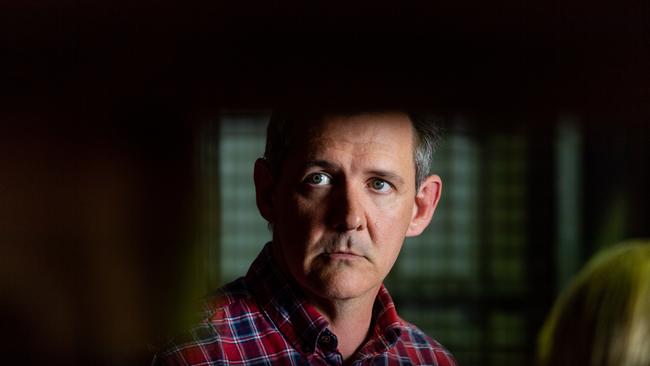Leaked report reveals renewable energy targets could cost NT taxpayers extra $29m in electricity
The NT government has tried to bury a report showing its renewable energy targets could see taxpayers slugged an extra $29m for electricity in 2030.
News
Don't miss out on the headlines from News. Followed categories will be added to My News.
RENEWABLE energy targets could see taxpayers slugged an extra $29m for electricity in 2030, according to a leaked report the NT government has tried to keep secret.
The report by HoustonKemp economists shows the cost of wholesale electricity will rise by about $14 per megawatt hour by the end of the decade to support the investment needed to achieve the government’s 50 per cent renewable energy target.
These costs would either need to be passed on to consumers or absorbed by the government through increased subsidies.
According to the 2017/18 budget papers, the NT government already pays about $80m a year to subsidise electricity costs for domestic and commercial customers via a Community Service Obligation (CSO) payment.
“Assuming the entire costs of the NT renewable energy target were covered by a CSO, we estimate that the CSO would rise by approximately $25 million in 2030 under the least cost pathway and by $29 million in 2030 under the linear pathway,” the report says.
If those costs were passed on to consumers, rather than absorbed through increased subsidies, the average annual power bill for the Territory’s 86,000 domestic and commercial customers would rise by between $290 and $337.
The consultants suggest the NT government should consider pushing back its investment in renewable energy until closer to 2030, pointing to potential savings of more than $120m if it does so.

“Given expectations about falling solar costs in the future, there is merit in delaying investment in solar within the Darwin-Katherine, Tennant Creek and Alice Springs regulated electricity systems so as to minimise the cost of renewable investment to achieve the NT RET by 2030,” the report says.
Despite paying the consultants $220,000 to prepare the report, the government has largely rejected its advice.
“There have been rapid advancements in renewable energy technology and further declines in renewable energy costs since 2019,” Environment Minister Eva Lawler said.
“The findings of the report now have limited application.”
The NT News obtained a copy of the report almost a year after the government rejected our application to access it under Freedom of Information.

Independent MLA Robyn Lambley said it was little surprise the government had tried to hide the report.
“This government’s broke, where will this money come from?” she said. “That’s why we’re not hearing about this report from the Gunner government, that’s why they’re hiding it because they don’t have the money to pay for this.”
The report by HoustonKemp economists shows the cost of wholesale electricity will rise by about $14 per megawatt hour by the end of the decade to support the investment needed to achieve the government’s 50 per cent renewable energy target.
These costs would either need to be passed on to consumers or absorbed by the government through increased subsidies.
According to the 2017/18 Budget papers the NT Government already pays about $80 million a year to subsidise electricity costs for domestic and commercial customers via a community service obligation (CSO) payment.
“Assuming the entire costs of the NT renewable energy target were covered by a CSO, we estimate that the CSO would rise by approximately $25 million in 2030 under the least cost pathway and by $29 million in 2030 under the linear pathway,” the report says.
If those costs were passed on to consumers, rather than absorbed through increased subsidies, the average annual power bill for the Territory’s 86,000 domestic and commercial customers would rise by between $290 and $337.
The consultants suggest the NT Government should consider pushing back its investment in renewable energy until closer to 2030, pointing to potential savings of more than $120 million if it does so.

“Given expectations about falling solar costs in the future, there is merit in delaying investment in solar within the Darwin-Katherine, Tennant Creek and Alice Springs regulated electricity systems so as to minimise the cost of renewable investment to achieve the NT RET by 2030,” the report says.
Despite paying the consultants $220,000 to prepare the report, the Government has largely rejected its advice.
“There have been rapid advancements in renewable energy technology and further declines in renewable energy costs since 2019,” Environment Minister Eva Lawler said.
“The findings of the report now have limited application.”
The NT News obtained a copy of the report almost a year after the Government rejected our application to access it under Freedom of Information.
Independent MLA Robyn Lambley said it was little surprise the Government had tried to hide the report.
“This Government’s broke, where will this money come from?” she said. “That’s why we’re not hearing about this report from the Gunner Government, that’s why they’re hiding it because they don’t have the money to pay for this.”





